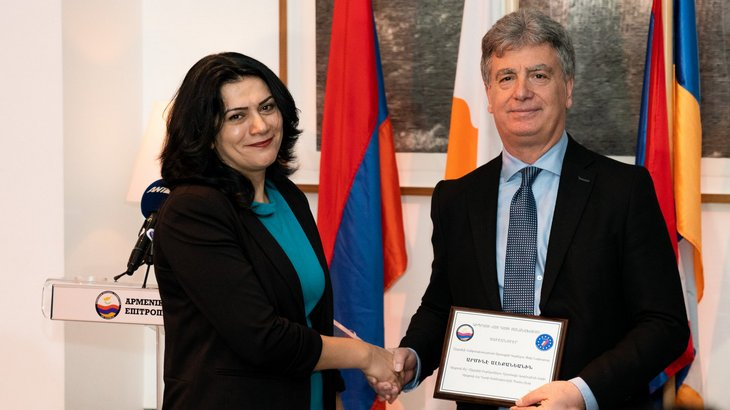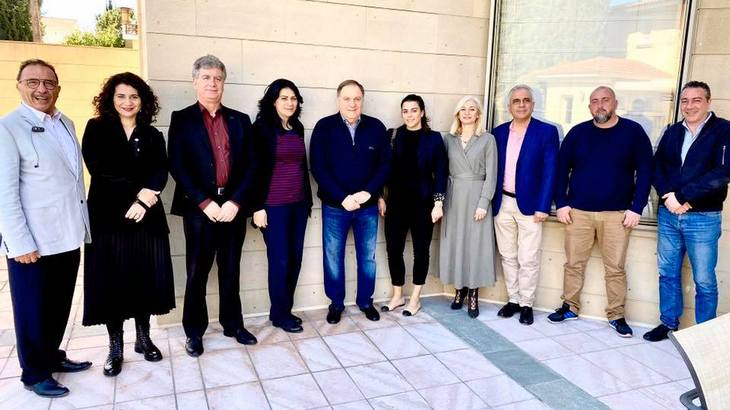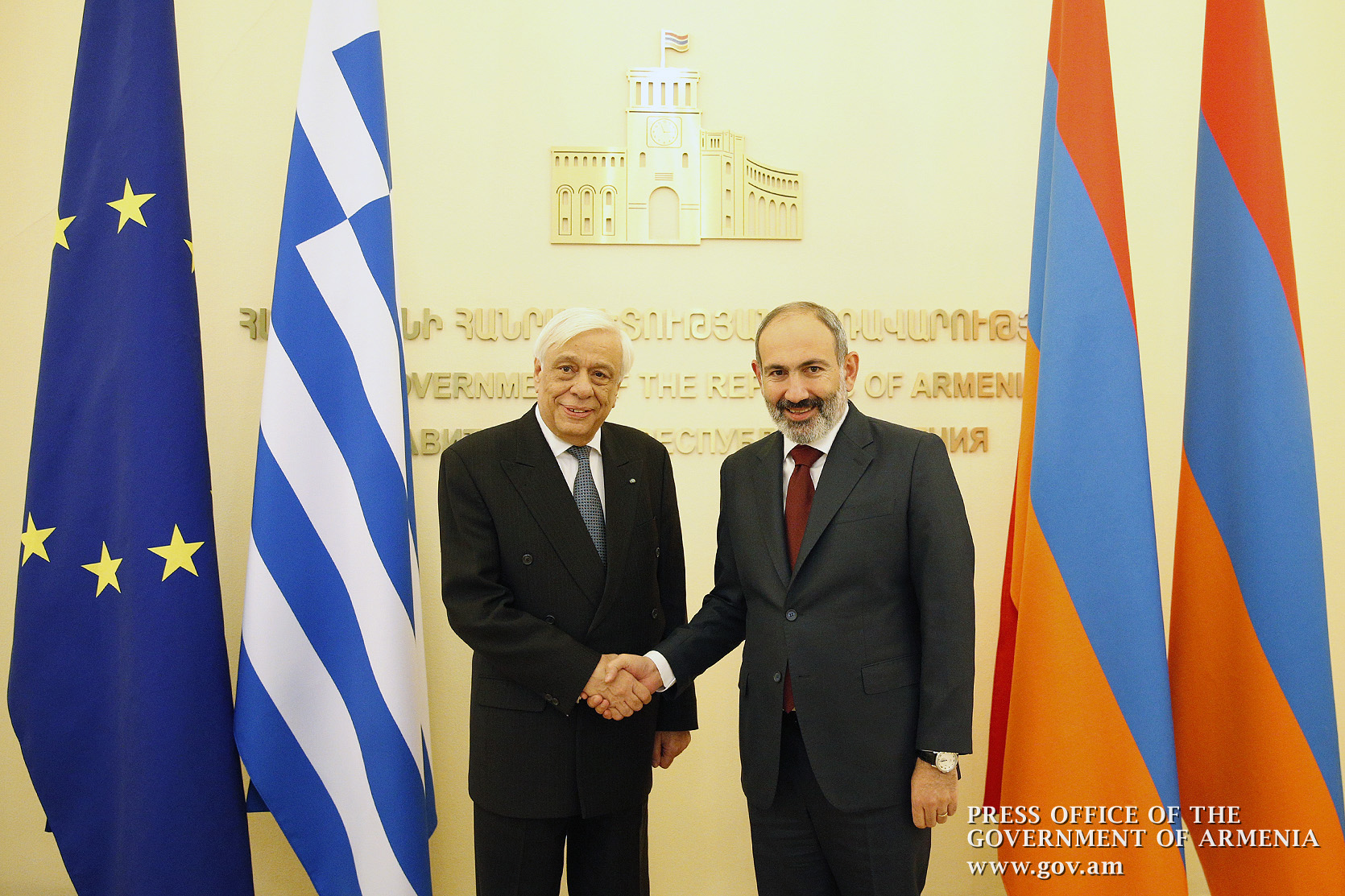
NICOSIA, Cyprus—Deputy Foreign Minister of Artsakh Armine Aleksanyan kicked off a working visit to the Republic of Cyprus last week by attending the establishment of the “Circle of Friendship with Artsakh in Cyprus,” which includes members of the Cypriot House of Representatives, city councilors and other distinguished political figures with the goal of providing political support for closer ties between the two entities.
In a speech given at a soirée organized by the Cypriot branch of the Armenian National Committee (ANC) later that evening, the Deputy Minister laid out Artsakh’s foreign policy priorities and highlighted the role of parliamentary diplomacy as a strategy for expanding the unrecognized republic’s profile at the international level. She also spoke of the important role that Diaspora Armenian groups play in helping to provide diplomatic legitimacy for Artsakh in the countries they represent, including Cyprus.

In fact, the Deputy Foreign Minister spent much of her visit with the local Armenian community. She visited the Nareg Armenian School and church in Limassol in the southern part of the island, as well as other Armenian sites in Larnaca and Nicosia. There, she met with various Armenian leaders along with the Hon. Vartkes Mahdessian, one of at least two ethnic Armenian members of the Cypriot Parliament. The Cypriot constitution actually guarantees three parliamentary seats to the Maronite, Roman Catholic and Armenian minorities.
The uninterrupted presence of an Armenian community on the island of Cyprus has been recorded as far back as before the Middle Ages with the first significant migrations starting under the reign of the Armenian-Byzantine Emperor Heraclius in the seventh century. These artisans and merchants were soon joined by refugees fleeing the fall of the Armenian Kingdom of Cilicia and other atrocities committed by the Ottomans. While many left for London upon the country’s independence, their numbers have been somewhat replenished by new arrivals from Lebanon, Egypt, Turkey, Greece, Kuwait and even Armenia in recent years. These Cypriot Armenians built schools, churches, community centers and monasteries which survived the Lusignians, Venetians, Ottomans and the British. However, many of these ancient sites, along with the entirety of Nicosia’s historic Armenian Quarter now lie on the north side of the Green Line, which has been under Turkish military occupation since 1974.
Still, a long history of life with the local Greek community and a sense of solidarity developed over shared struggle against Turkey has turned Cyprus into one of Armenia’s—and Artsakh’s—most steadfast European allies. Dr. Eleni Theocharous, a former Member of European Parliament (MEP) from Cyprus, has been a vocal supporter of recognition for Artsakh’s right to self-determination and has visited the republic multiple times as a sitting MEP. “The European Union should support Nagorno Karabakh people who struggle for their freedom. They cannot be left in injustice. We should recognize the Nagorno Karabakh and impose sanctions against Azerbaijan. This will bring us to the establishment of peace,” Theocharous was quoted as saying in 2016.
Indeed, with nearly one-third of the Republic of Cyprus’ territory still illegally occupied by Turkey, much of which has been reorganized as part of the “Turkish Republic of Northern Cyprus” (TRNC), an entity which only Turkey recognizes, the island-nation finds itself in a paradoxically reverse situation to that of Artsakh. Yet this hasn’t hindered the two entities from finding common cause. Authorities in Nicosia routinely criticize Erdogan for hypocritically accusing Armenia of “occupying” Azeri territory when his own troops do the same.
Cyprus has also threatened on numerous occasions to immediately recognize the Republic of Artsakh (becoming the first UN member-state to do so) if Azerbaijan were to extend diplomatic ties to the TRNC. So far Baku has abided by Nicosia’s terms despite pan-turkic sympathies for the TRNC.

In a recent sign of deepening relations between Armenia and the two Hellenic republics, Cypriot and Greek leaders were invited to Yerevan for the first ever trilateral summit in November 2019. Addressing Greek President Procopios Pavlopolos before the summit, Armenian Prime Minister Nikol Pashinyan expressed that their union would “provide the favorable groundwork for cooperation over global security matters because the recognition of genocides is not only a matter of historical recognition for us, but also an important effort aimed at the global security and prevention of genocides.”


Be the first to comment